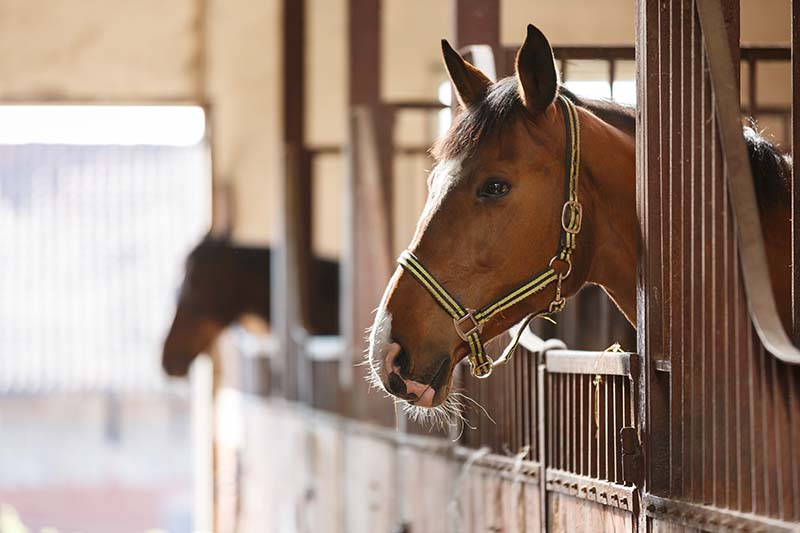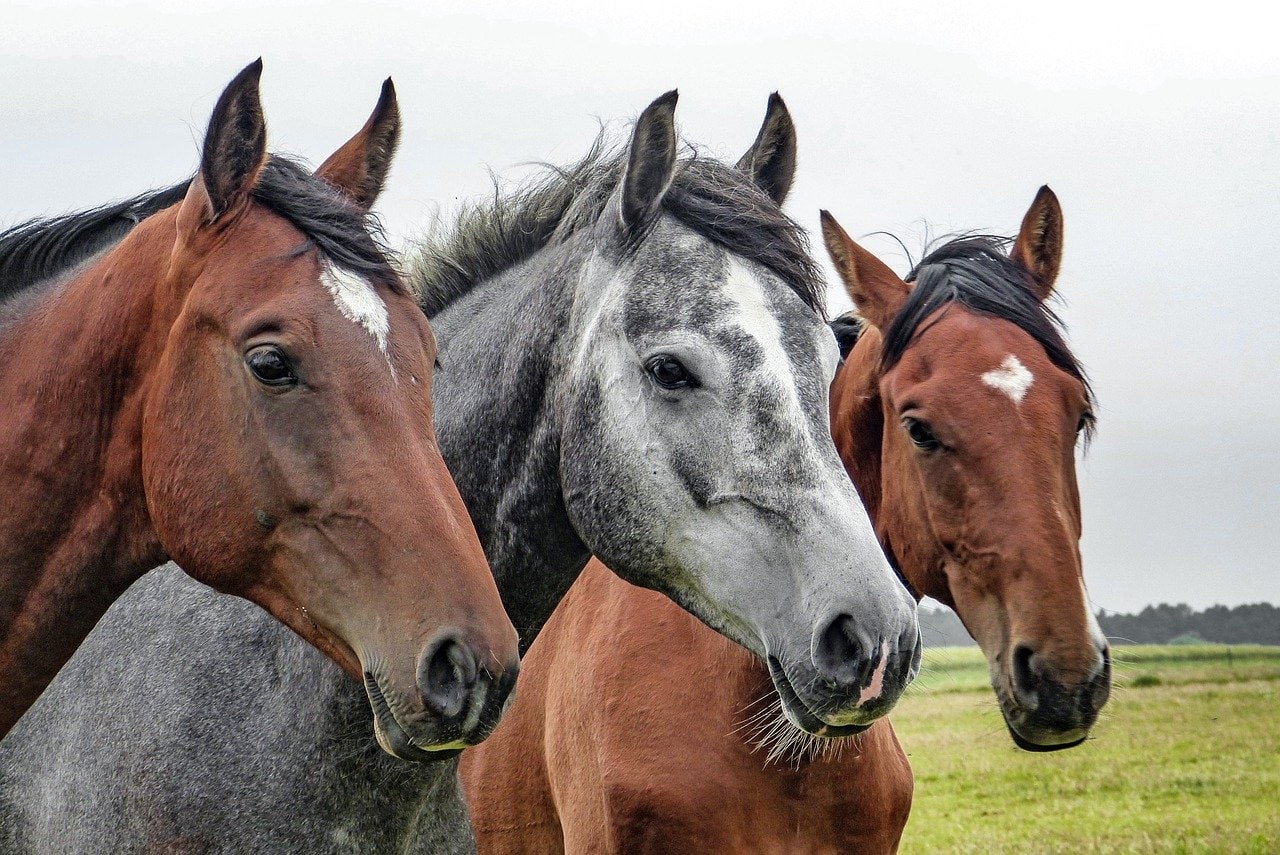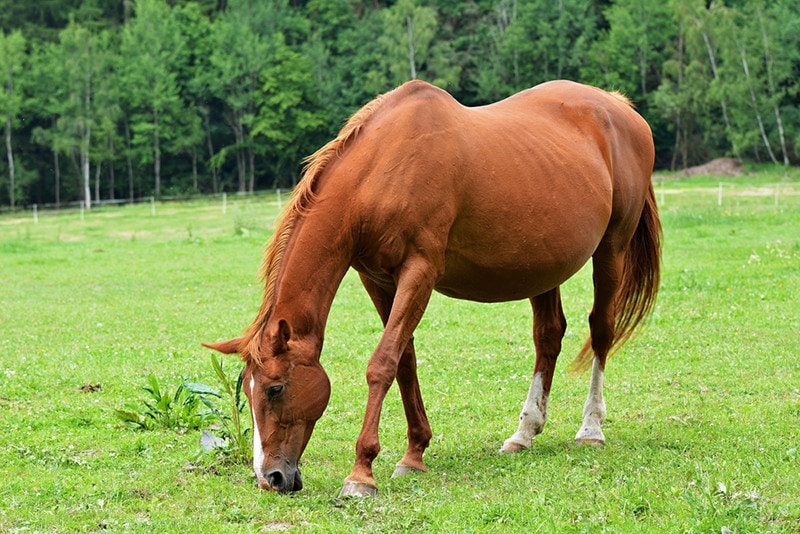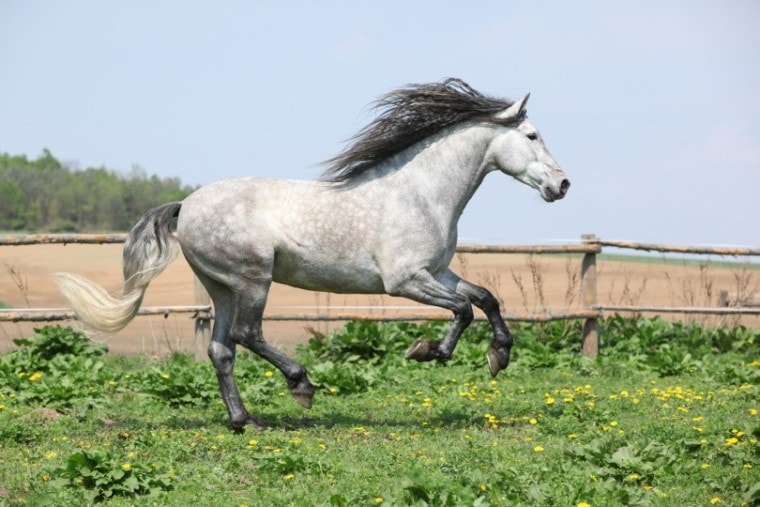
Horses are graceful, intelligent, big, and beautiful animals that offer companionship, farm help, and an enjoyable ride. They do need to be groomed regularly, which begs the question: Do horses sweat? The short answer is yes, they do sweat. In fact, did you know that only primates, like us, and horses truly sweat? It’s true! Here is what you need to know about a sweating horse and how to handle it.
How and Why Horses Sweat
Horses cool themselves by sweating, so they tend to sweat mostly when it is warm outside or when they are engaged in intense physical activity. When it is especially warm, a horse can sweat up to 4 gallons of water in an hour! Sweating is normal for horses and is nothing to be concerned about unless signs of heatstroke develop.
Horses do not sweat all over their bodies when they are trying to cool down.
Instead, the sweat tends to come from their neck and chest, as well as from their legs when they are moderately hot. If they get overly hot, they could start to sweat from their rump, and the chances are that the horse is in danger of getting heatstroke. Another sign that a horse is getting too hot is profuse sweating while standing still. A little sweating is normal, but excessive sweating while resting should be addressed with a veterinarian’s visit.
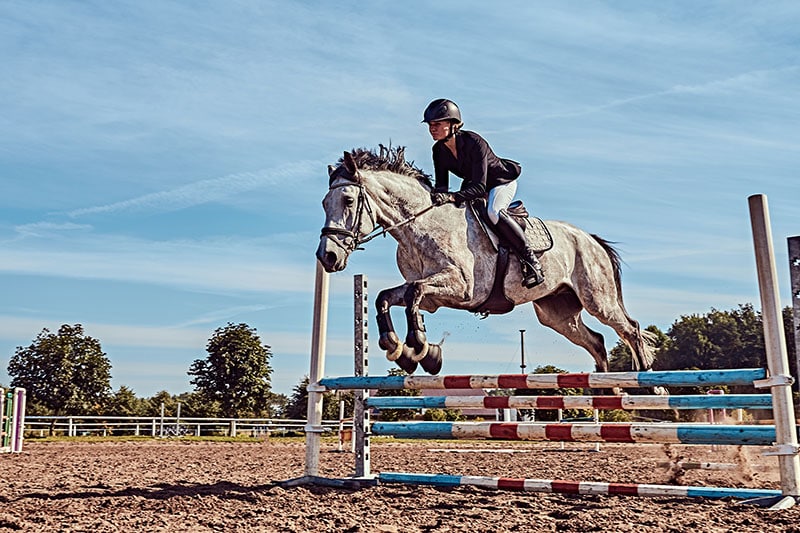
How Sweating Can Be a Sign of Health Problems
Horses should sweat when they exercise or spend extended periods of time under the sun. They lose up to 70% of the heat that they generate when they sweat. A horse that sweats extraordinarily little or that does not sweat at all could be suffering from a health condition called anhidrosis, which can result in side effects such as increased respiratory rates, flaky skin, fatigue, hair loss, and even a lack of interest in eating.
Excessive sweating can also be dangerous, as sweating could result in dehydration. A dehydrated horse gets cramps when they move, especially when a rider is on them. Dehydration can also lead to heat exhaustion, seizures, and even kidney failure. Horses should have access to unlimited clean water throughout the day to help combat the risk of dehydration.
How to Relieve Sweating and Regulate Temperature
If a horse is sweating too much, there are a few things that can be done to relieve the sweating and make body temperature regulation easier on them overall. First and foremost, a spray down with a water hose should be offered. Watering a horse down will quickly reduce their body temperature and help them cool off without sweating all their water and electrolytes out.
Putting sprinklers on where horses are roaming in the sun will help keep them cool too. It is important to make sure that horses have access to shade via trees, barns, and other means so that they do not have to stand under the sun all day long, especially when they start sweating. To minimize the risk of dehydration for a sweating horse, place a salt rock next to their water container. This will help restore a large number of electrolytes that are lost while sweating. You can also add electrolyte supplements to a bucket of water and put it next to their clean water source.
Wetting blankets with a hose and laying them over a horse that is sweating in their stall during the downtime will help keep them cool until the sun goes down and the weather cools off. On especially hot days, it is a good idea to refrain from mounting or riding a sweating horse because it may quickly overheat them. Instead, choose an early morning or cool evening time to ride.
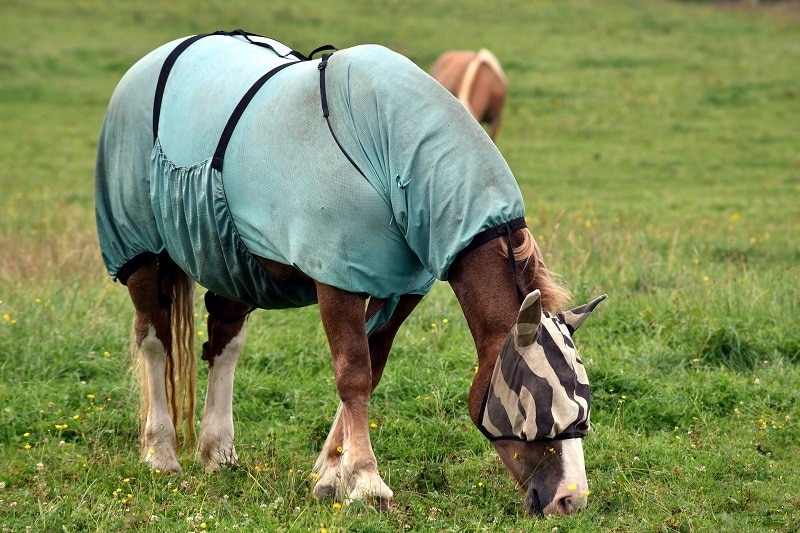
Final Thoughts
Horses do sweat and should sweat when their body temperature rises. They do this naturally, so there is never a need to try and induce sweating. However, if excessive sweating happens or if no sweating happens at all, it is important to take steps that will help relieve their condition, including calling the veterinarian. Share any tips or tricks that you have for keeping sweating horses cool in our comments section.
Featured Image Credit: Zuzule, Shutterstock


